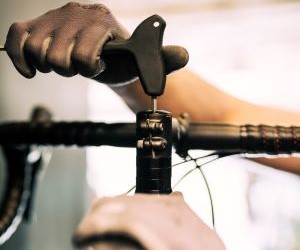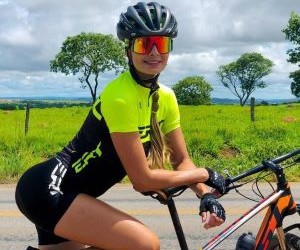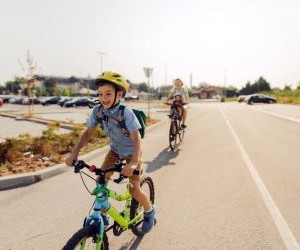Discover the powerful benefits of cycling every day—from better health and mental clarity to eco-savings and long-term fitness—one pedal stroke at a time.
WHAT CHALLENGES DO LATIN AMERICAN RIDERS FACE IN BREAKING THROUGH TO THE WORLDTOUR?
The WorldTour represents the pinnacle of professional cycling, yet for many Latin American riders, the road to this elite level is paved with obstacles. From limited training infrastructure and financial constraints to cultural adaptation and visa hurdles, their path is more complex than that of their European counterparts. Despite producing legendary talents who have won Grand Tours and classics, countless riders remain locked out of opportunities due to structural and systemic issues. This article examines the multifaceted challenges Latin American cyclists confront in breaking into the WorldTour and how overcoming them could reshape the sport’s global landscape.

Limited infrastructure and support
Unlike Europe, where cycling infrastructure is deeply embedded in sports culture, much of Latin America lacks the structured systems required to consistently produce world-class riders. The difference begins with grassroots development, where access to quality equipment, safe training roads, and organized youth programs is often scarce. Riders from Colombia, Ecuador, or Argentina often train on challenging terrains, but the lack of formal systems creates uneven opportunities for talent identification.
Training conditions versus professional standards
Although Latin America boasts mountains that rival Europe’s in difficulty, riders frequently lack access to sports science support, altitude simulation facilities, or structured coaching programs. This means that even the most talented cyclists enter European competition at a disadvantage, needing to adjust not only to different racing styles but also to new standards of physical preparation.
Limited access to professional coaching and sports science programs.
High costs of bikes, equipment, and travel compared to average local incomes.
Insufficient junior development academies with international connections.
Lack of protected training environments, with safety concerns on open roads.
This disparity explains why even riders with raw potential must endure steep learning curves once they secure contracts abroad. By the time they adapt, their European peers may already have years of structured development behind them.
Dependence on national federations
National cycling federations in Latin America often struggle with limited budgets and organizational inefficiencies. While Colombia and Ecuador have produced champions, these successes are exceptions rather than the result of sustained programs. Without consistent investment, aspiring riders are left to depend on personal networks, family sacrifices, or international scouts to take the next step in their careers.
Financial and logistical barriers
Breaking into the WorldTour requires more than talent—it demands financial resources and logistical support that many Latin American families cannot provide. Unlike European riders who benefit from proximity to major races, Latin American cyclists face the costs of intercontinental travel, extended stays abroad, and navigating complex visa processes. These barriers often discourage talented riders from pursuing professional opportunities, no matter their physical ability.
High costs of entry into global cycling
Securing a spot in European development teams often requires riders to pay their own way for travel, lodging, and equipment. For families in Latin America, these expenses can be prohibitive. Even when riders are spotted by scouts, the lack of sponsorship or federation backing can mean opportunities vanish before they materialize.
Flight costs and visa fees for traveling to Europe or North America.
Living expenses in high-cost regions like Spain, Italy, or Belgium.
Maintenance of high-end equipment without reliable sponsorship deals.
Loss of income for families supporting riders abroad.
While European juniors can race in continental circuits with relative ease, Latin Americans must cross oceans, which magnifies the stakes of every opportunity. A single failed stint can mean the end of a career, not just a temporary setback.
Visa and residency challenges
Paperwork can be as big a hurdle as physical effort. Riders often face delays or outright denials when applying for long-term visas to compete in Europe. Even after contracts are signed, bureaucratic red tape can delay their ability to join training camps or races, putting them at a disadvantage compared to peers who face no such restrictions. This challenge highlights how global inequality shapes access to sport at the highest level.
Cultural adaptation and career sustainability
Beyond physical performance, one of the most underappreciated challenges Latin American riders face is cultural adaptation. Living and racing in Europe or North America requires not only language skills but also psychological resilience. Riders are uprooted from their families, placed in unfamiliar environments, and often expected to perform at their peak under immense pressure.
Language, food, and lifestyle differences
Language barriers often isolate riders from teammates, coaches, and even fans. Nutrition can also be a challenge—traditional diets differ significantly, and adjusting to European food cultures can affect performance. These small but cumulative challenges can wear on a rider’s confidence and sense of belonging.
Language barriers affecting team communication and tactical execution.
Cultural isolation and homesickness impacting mental health.
Adjusting to new dietary regimens aligned with sports science recommendations.
Pressure to perform immediately to secure future contracts.
While these may seem secondary to physical ability, they play a decisive role in whether riders can sustain long-term careers abroad. The psychological toll has ended many promising careers prematurely.
Sustainability beyond breakthrough moments
For the few who do break through, sustaining a career in the WorldTour presents its own challenges. Riders must prove consistent value to teams that operate on tight budgets and results-driven contracts. Unlike European riders with local fan bases, Latin American cyclists often lack the same marketing pull, which can affect contract negotiations. As a result, only a handful maintain long careers despite clear talent.
Ultimately, the barriers Latin American riders face in breaking through to the WorldTour highlight both the inequities in professional cycling and the resilience required to overcome them. Their stories reflect not just athletic talent but also determination against systemic odds, making their achievements all the more remarkable.
YOU MAY ALSO BE INTERESTED








